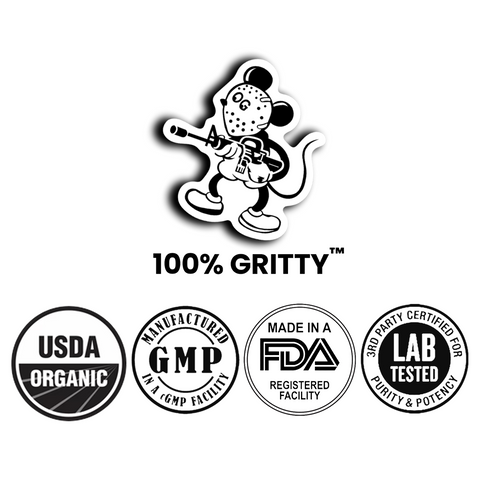CBD, short for cannabidiol, has taken the wellness world by storm as a natural remedy for a wide range of health issues. With its growing popularity, it's natural for people to have questions about its effects on different aspects of our well-being. One common question that often arises is whether CBD has an impact on appetite. Specifically, people are curious to know if CBD makes you hungry or stimulates appetite.
In this comprehensive blog post, we will explore the intriguing relationship between CBD and appetite. We'll dig deep into the existing research, examining the scientific evidence and insights from experts in the field. By the end of this article, you will have a clearer understanding of how CBD influences our hunger cues and whether it can potentially affect your appetite.
The Endocannabinoid System and Appetite Regulation
To understand the potential impact of CBD on hunger, we must first explore the endocannabinoid system (ECS). The ECS plays a crucial role in regulating various physiological processes, including appetite. The ECS consists of endocannabinoids, receptors, and enzymes that work together to maintain homeostasis within the body.

CB1 Receptors and Appetite Stimulation
The CB1 receptors, primarily located in the central nervous system and peripheral tissues, play a vital role in regulating appetite. When activated by endocannabinoids or external cannabinoids like CBD, these receptors can influence appetite and food intake.
Endocannabinoids, such as anandamide, are naturally produced compounds that bind to CB1 receptors. They help regulate appetite by interacting with various brain regions involved in hunger and satiety. The activation of CB1 receptors by endocannabinoids can stimulate appetite.

The Effects of CBD on Appetite
Now that we understand the basics of appetite regulation, let's explore the effects of CBD on hunger and whether it can make you feel more hungry or suppress appetite.
Some studies suggest that THC, another cannabinoid found in cannabis, can increase appetite. However, CBD is non-intoxicating and does not have the same appetite-stimulating properties as THC. Research indicates that CBD may have a more complex effect on appetite regulation.
CBD's Influence on Ghrelin and Leptin Levels
Ghrelin and leptin are hormones involved in hunger and satiety. Ghrelin, also known as the "hunger hormone," stimulates appetite, while leptin signals fullness and reduces hunger. Some studies suggest that CBD may influence these hormones, potentially leading to appetite regulation.

Factors That Can Influence the Effects of CBD on Appetite
It's important to note that the effects of CBD on appetite can vary from person to person. Several factors can influence how CBD interacts with the body's hunger cues, including:
Dosage and Administration Method
The dosage and administration method of CBD can impact its effects on appetite. Different doses may produce different results, and the method of consumption, such as oral ingestion or topical application, can affect how CBD is absorbed and metabolized.
Individual Variations and Metabolism
Each individual's body chemistry and metabolism can influence how CBD interacts with the endocannabinoid system. Factors such as age, weight, and overall health can contribute to variations in the effects of CBD on appetite.
The Bottom Line
In conclusion, the effects of CBD on appetite are still being studied, and the relationship between CBD and hunger is complex. While some studies suggest that CBD may have an impact on appetite regulation, the specific effects can vary among individuals. It's essential to consider factors such as dosage, administration method, and individual variations when assessing how CBD may affect appetite.
As always, it's recommended to consult with a healthcare professional before incorporating CBD into your routine, especially if you have specific concerns about appetite regulation or any existing medical conditions.
References:
The Endocannabinoid System, Cannabinoids, and Appetite. Rambam Maimonides Medical Journal, 1(4), e0022. doi: 10.5041/RMMJ.10022
Farrimond, J. A., et al. (2012). Cannabinol and Cannabidiol Exert Opposing Effects on Rat Feeding Patterns. Psychopharmacology, 223(1), 117-129. doi: 10.1007/s00213-012-2697-x
Bellocchio, L., & Cota, D. (2006). The Endocannabinoid System and Energy Homeostasis: The Balancing Act. Trends in Molecular Medicine, 12(12), 595-601. doi: 10.1016/j.molmed.2006.10.006
Koch, M., et al. (2019). The Role of Leptin in Cannabinoid-Induced Feeding Suppression. Psychopharmacology, 236(11), 3245-3255. doi: 10.1007/s00213-019-05260-3
Briers, D. A., et al. (2021). Effects of Cannabidiol on Hunger and Appetite in Healthy Participants: A Systematic Review of Clinical Trials. International Journal of Molecular Sciences, 22(14), 7792. doi: 10.3390/ijms22147792






Comments (0)
There are no comments for this article. Be the first one to leave a message!